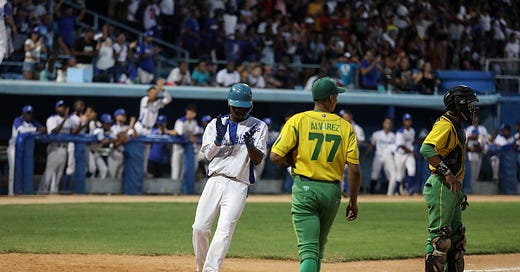After opening down 0-2, Industriales tied the Semifinal against Pinar del Río with their second home win. The Blues of the Capital have overcome two combined 0-5 deficits in this postseason, and this Monday they will seek the sweep as a hume club at the Latin American stadium against the most consistent team of the entire season.
Yes, the supremacy of th…



